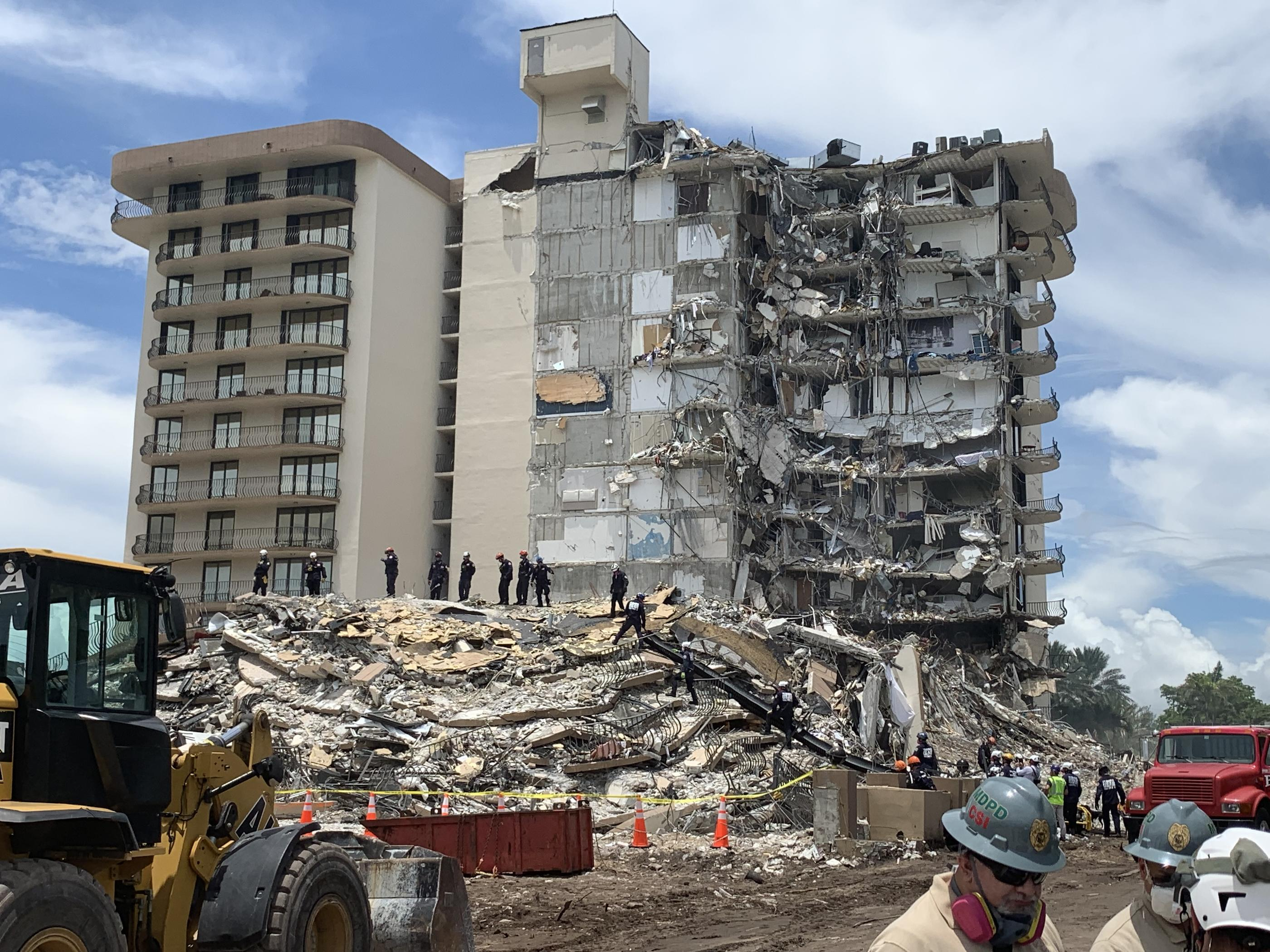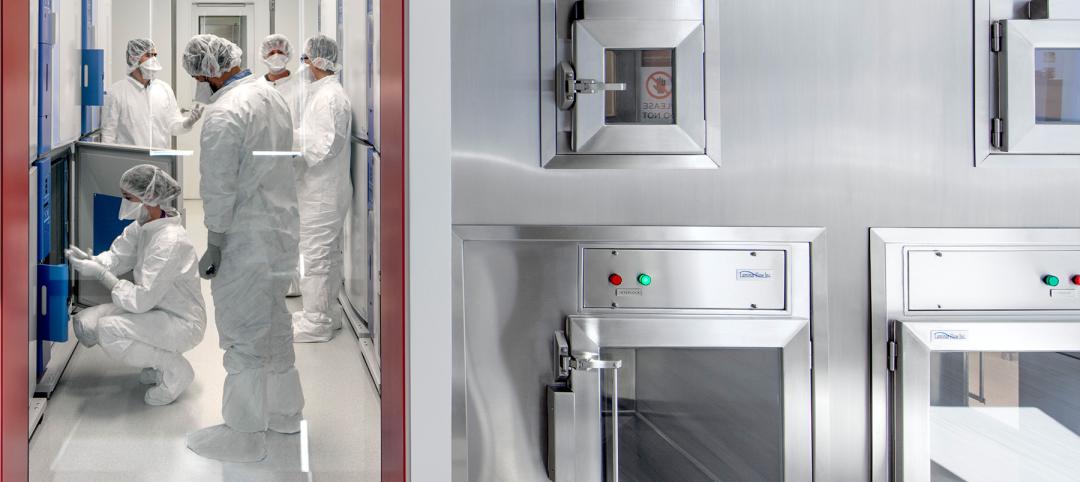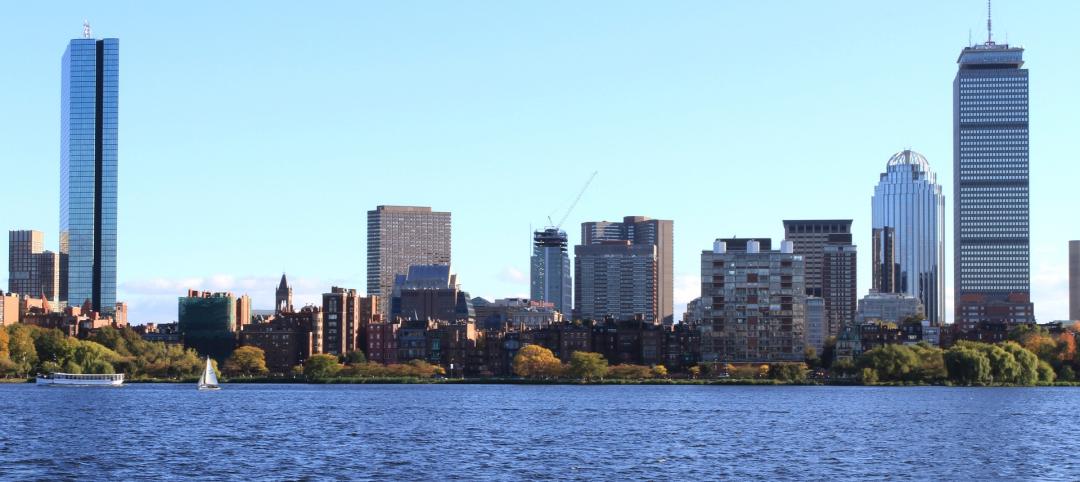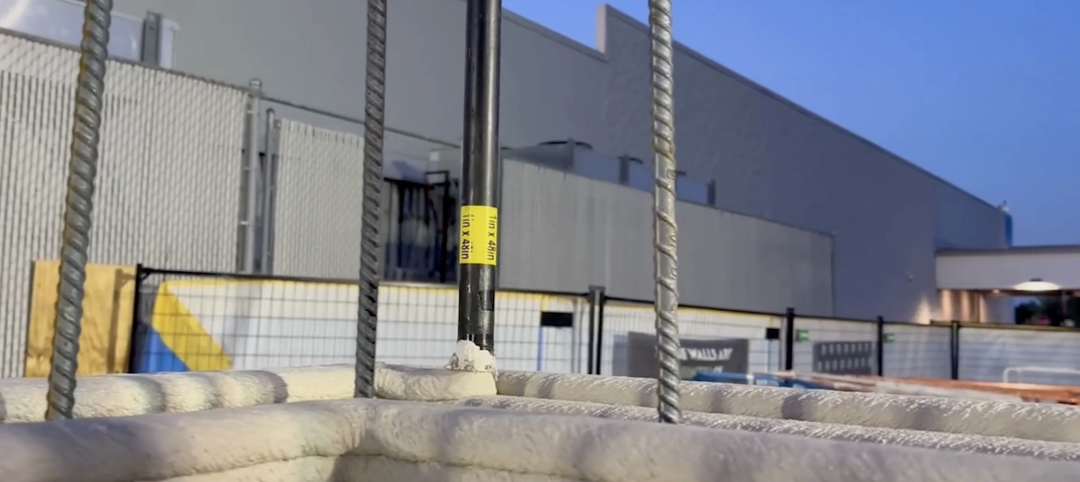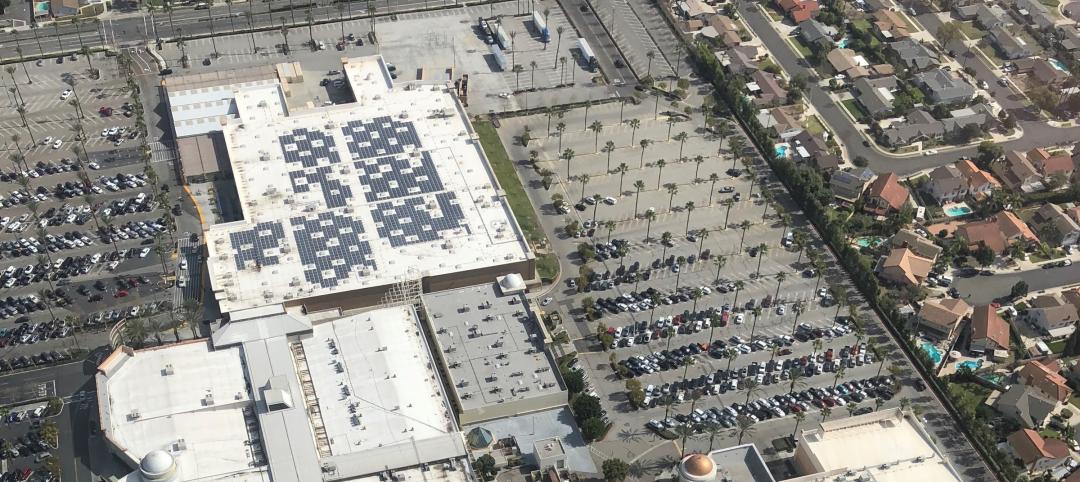Investigators from the National Institute of Standards and Technology (NIST) say they have found no evidence of underground voids on the site of the Champlain Towers South collapse, according to a new NIST report.
The team of investigators have studied the site’s subsurface conditions to determine if sinkholes or excessive settling of the pile foundations might have caused the collapse. They have found no such evidence to support that potential cause.
Preliminary evaluation of data indicates about one quarter of an inch or less of settling in the pile foundations supporting the pool deck structure and basement. This would have had minimal impact on the pool deck structure, NIST says.
“Understanding exactly what caused this collapse is taking meticulous investigation and the collection of copious amounts of evidence and information,” said Joannie Chin, director of NIST’s Engineering Laboratory. “Our team members are dedicated to unraveling the complexities of this tragic event, and their rigorous research and analysis will not only help us understand the likely technical cause of the collapse but will improve the safety of our communities.”
The team’s preliminary evaluation of physical and historical evidence found that the pool deck construction deviated from design requirements. Specifically, the number of slab reinforcing bars centered over vertical columns was inadequate, and the reinforcing bars in the top of the slab in the vicinity of the columns were spaced farther apart than the design required, according to investigators. These deviations weakened the slab-column connections, they said.
NIST expects technical work on the investigation to be substantially completed in late June 2024 and aims to release a report with findings and recommendations in late June 2025.
Related Stories
Data Centers | Oct 1, 2024
10 biggest impacts to the data center market in 2024–2025
While AI sends the data center market into the stratosphere, the sector’s accelerated growth remains impacted by speed-to-market demands, supply chain issues, and design innovation necessities.
Higher Education | Sep 30, 2024
Studio Gang turns tobacco warehouse into the new home of the University of Kentucky’s College of Design
Studio Gang has completed the Gray Design Building, the new home of the University of Kentucky’s College of Design. In partnership with K. Norman Berry Associates Architects, Studio Gang has turned a former tobacco warehouse into a contemporary facility for interdisciplinary learning and collaboration.
Warehouses | Sep 27, 2024
California bill would limit where distribution centers can be built
A bill that passed the California legislature would limit where distribution centers can be located and impose other rules aimed at reducing air pollution and traffic. Assembly Bill 98 would tighten building standards for new warehouses and ban heavy diesel truck traffic next to sensitive sites including homes, schools, parks and nursing homes.
Laboratories | Sep 26, 2024
BSL conversions: A cost-efficient method to support high-containment research
Some institutions are creating flexible lab spaces that can operate at a BSL-2 and modulate up to a BSL-3 when the need arises. Here are key aspects to consider when accommodating a rapid modulation between BSL-2 and BSL-3 space.
MFPRO+ News | Sep 24, 2024
Major Massachusetts housing law aims to build or save 65,000 multifamily and single-family homes
Massachusetts Gov. Maura Healey recently signed far-reaching legislation to boost housing production and address the high cost of housing in the Bay State. The Affordable Homes Act aims to build or save 65,000 homes through $5.1 billion in spending and 49 policy initiatives.
Mixed-Use | Sep 19, 2024
A Toronto development will transform a 32-acre shopping center site into a mixed-use urban neighborhood
Toronto developers Mattamy Homes and QuadReal Property Group have launched The Clove, the first phase in the Cloverdale, a $6 billion multi-tower development. The project will transform Cloverdale Mall, a 32-acre shopping center in Toronto, into a mixed-use urban neighborhood.
3D Printing | Sep 17, 2024
Alquist 3D and Walmart complete one of the nation’s largest free-standing, 3D-printed commercial structures
Walmart has completed one of the largest free-standing, 3D-printed commercial structures in the US. Alquist 3D printed the almost 8,000-sf, 20-foot-high addition to a Walmart store in Athens, Tenn. The expansion, which will be used for online pickup and delivery, is the first time Walmart has applied 3D printing technology at this scale.
Retail Centers | Sep 17, 2024
Thinking outside the big box (store)
For over a decade now, the talk of the mall industry has been largely focused on what developers can do to fill the voids left by a steady number of big box store closures. But what do you do when big box tenants stay put?
Government Buildings | Sep 17, 2024
OSHA’s proposed heat standard published in Federal Register
The Occupational Safety and Health Administration (OSHA) has published a proposed standard addressing heat illness in outdoor and indoor settings in the Federal Register. The proposed rule would require employers to evaluate workplaces and implement controls to mitigate exposure to heat through engineering and administrative controls, training, effective communication, and other measures.
Codes and Standards | Sep 17, 2024
New California building code encourages, but does not mandate heat pumps
New California homes are more likely to have all-electric appliances starting in 2026 after the state’s energy regulators approved new state building standards. The new building code will encourage installation of heat pumps without actually banning gas heating.



